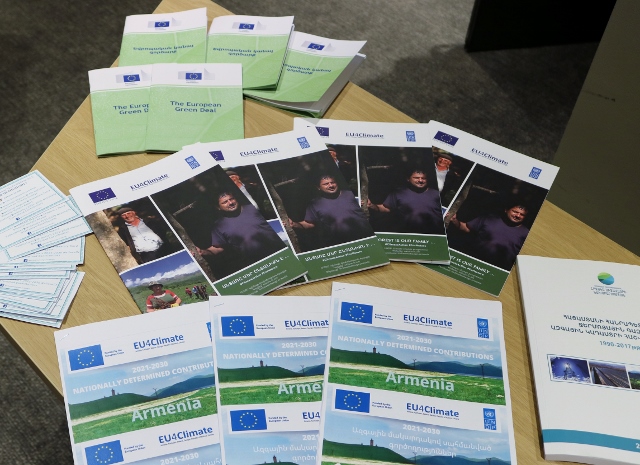A national workshop dedicated to presenting the study for assessing the potential for enhancing removals by sinks and reducing GHG anthropogenic emissions by sources in the land use, land-use change and forestry sector (LULUCF) as part of Armenia’s Long-Term Low Emission Development Strategy took place on 11 June 2021.
The workshop gathered together officials from the Ministry of Environment, representatives from UNDP Armenia, UN FAO, Regional Environmental Center (REC), Hydrometeorology and Monitoring Center, National Expertise Center, Armenia Tree Project, Khazer NGO, aiming to discuss the assessment results of the Technical Report developed by the specialized company, Citepa contracted under the Armenian component of the EU4Climate UNDP-EU regional project.
The Technical Report covers the estimates of Armenia's climate change mitigation potential, and possible mitigation actions related to the LULUCF sector in Armenia considering the ambitions set in Armenia’s NDC 2021-2030 .
Etienne Mathias, Head of AFOLU Department of Citepa delivered a presentation on the study conducted, mitigation actions analyzed for Armenia, focusing on the types of mitigation actions in LULUCF sector, including carbon stocks and actions on GHG, the mechanisms of actions’ proper implementation, the cumulative impact and perspectives for ensuring long term effects.
Twenty six mitigation actions identified in the Technical Report included activities in land use change, forests, agriculture, for each of which separate principles, national situation, unitary mitigation impact, application scale and global mitigation impacts were considered.
Afterwards the discussion evolved between the participants by moderation of Diana Harutyunyan, UNDP Climate Change Programmes Coordinator, unveiling the concerns and needs related to the suggested actions and mechanisms of implementation.
The Technical Report will be updated based on the comments and feedback received during the workshop, after which a policy note will be formulated, focusing on recommendations on main mitigation policies and measures to be implemented.

 Locations
Locations

